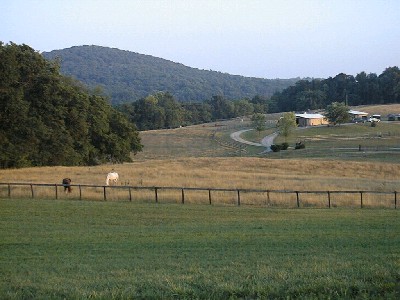

Environmental Education...
Where your food comes from
and
Connecting with nature
The following statement really sums up the issues that call people to CSA, both political and personal. It was printed in Sharing the Harvest, a quote from Genesis Farm Community Supported Garden in New Jersey:
"All of us are increasingly aware that the present state of farming in the United States and around the world is in serious difficulty. Agribusiness, with its chemical-intensive, industrialized methods of crop production is replacing agriculture, with its small human-scale, and diversified character and its commitment to place and community." "Many people feel a keen sense of separation from nature and the soil resulting from our urban and suburban settlements. From childhood throughout our adult lives, we feel a deep hunger for a return to the soul of nature. The teeming life, the extraordinary beauty, and the sense of wholeness that a farm provides is a precious gift to nourish this spiritual hunger. The garden offers a way to experience the mystery of seeds and soil and to reconnect in an endless variety of possibilities for creating friendship, community, and the strong connections that historically tied farmers and communities into harmonious relationship with the Earth and each other." It is that keen sense of separation from nature that inspires me to bring people to the farm. There is a healing and nurturing quality that comes with spending time in nature. Its wholeness feeds the soul. Farms feed the hollow in adult souls that have been deprived of nature. For children, it fulfills a natural inclination to be connected with the earth. And they learn where their food comes from. This is why our CSA is founded on a participatory agreement. CSA members agree to help out several times during the season. It helps Phil and I with the intense work that sustainable growing practices demand and it helps get people involved, committed, and back into the earth. We host Farm Hands Days now and then, which are social days where people help us with the jobs of the farm while having a fun time together. Children are making connections on the farm every time they visit. They have all the benefits of watching the farm grow. In the spring, they help make trays of soil blocks and plant little seeds. They watch the plants get big in the greenhouse. They come back for a Farm Day and help plant the seedling blocks into the ground. And then they can see the mature plants, help harvest, and eat them at home. The full life cycle of the food is there, the perfect experiential learning process.